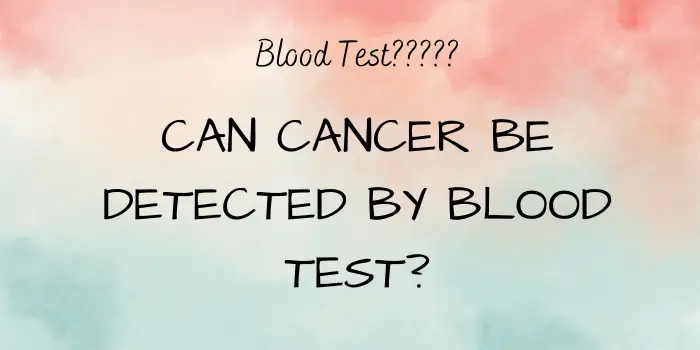Erectile dysfunction (ED), also known as impotence, is a common male sexual health condition characterized by the persistent inability to achieve and maintain an erection firm enough for satisfactory sexual intercourse. It can affect men of all ages, but it is more common in older men.
What Causes Erectile Dysfunction?
There are many potential causes of ED, which can be broadly categorized into physical and psychological factors.
Physical Causes
Vascular diseases: Cardiovascular diseases like heart disease, high blood pressure, and atherosclerosis can restrict blood flow to the penis, making it difficult to achieve an erection.
Diabetes: Diabetes can damage nerves and blood vessels, including those in the penis, contributing to ED.
Hormonal imbalances: Low testosterone levels, a common condition in older men, can also play a role in ED.
Neurological disorders: Neurological conditions like Parkinson’s disease, multiple sclerosis, and stroke can affect the nerves responsible for erectile function.
Medications: Certain medications, such as antidepressants, blood pressure medications, and antihistamines, can have ED as a side effect.
Peyronie’s disease: This condition involves the formation of scar tissue in the penis, which can cause pain, curvature, and ED.
Psychological Causes
Performance anxiety: Anxiety about sexual performance can create a vicious cycle where fear of failure leads to ED, which in turn reinforces the anxiety.
Depression: Depression can negatively impact sexual desire and arousal, leading to ED.
Relationship problems: Stress, conflict, and lack of communication in a relationship can contribute to ED.
Substance abuse: Excessive alcohol consumption and drug use can impair sexual function and lead to ED.
Erectile Dysfunction Medicines
Various Erectile Dysfunction medications are available to treat ED, including oral medications, injections, and topical creams. These medications work by increasing blood flow to the penis, enhancing nerve function, or improving hormonal balance.
Is Ed a Sign of a Serious Underlying Medical Condition?
While ED can be caused by emotional factors, it can also be a symptom of an underlying medical condition, such as heart disease, diabetes, or hormonal imbalances. If you are experiencing ED, it is important to consult a doctor to rule out any underlying medical issues.
Are There Any Lifestyle Changes I Can Make to Improve My Erectile Function?
Yes, there are several simple lifestyle changes you can make to improve your erectile function:
Quit smoking: Smoking damages blood vessels, including those in the penis, which can make it difficult to achieve and maintain an erection.
Maintain a healthy weight: Being overweight or obese can increase your risk of ED. Losing even a small amount of weight can improve blood flow and erectile function.
Get regular exercise: Exercise improves blood circulation and overall health, which can benefit erectile function. Aim for at least 30 minutes of moderate-intensity exercise most days of the week.
Limit alcohol consumption: Excessive alcohol consumption can impair blood flow and nerve function, contributing to ED. Moderate alcohol intake is generally considered safe for most adults.
Manage stress: Stress can negatively impact sexual desire and arousal, leading to ED. Find healthy ways to manage stress, such as yoga, meditation, or spending time in nature.
What Is the Major Cause of Erectile Dysfunction?
Erectile dysfunction (ED) is a common condition that affects millions of men worldwide. It is characterized by the inability to achieve or maintain an erection firm enough for satisfactory sexual intercourse. While ED can be caused by a variety of factors, the most common causes are physical.
Vascular diseases: Cardiovascular diseases such as heart disease, high blood pressure, and atherosclerosis can restrict blood flow to the penis, making it difficult to achieve and maintain an erection.
Diabetes: Diabetes can damage nerves and blood vessels, including those in the penis, contributing to ED.
Hormonal imbalances: Low testosterone levels, which are common in older men, can also play a role in ED.
Neurological disorders: Neurological conditions such as Parkinson’s disease, multiple sclerosis, and stroke can affect the nerves responsible for erectile function.
Medications: Certain medications, such as antidepressants, blood pressure medications, and antihistamines, can have ED as a side effect.
Peyronie’s disease: This condition involves the formation of scar tissue in the penis, which can cause pain, curvature, and ED.
What Food Is Good for Erectile Dysfunction?
Erectile dysfunction (ED) is a common condition that can affect men of all ages. It is characterized by the inability to achieve or maintain an erection firm enough for satisfactory sexual intercourse.
While there are many potential causes of ED, some dietary changes may help improve erectile function.
Watermelon: Watermelon contains citrulline, an amino acid that the body converts into arginine. Arginine is a precursor to nitric oxide, which helps relax blood vessels and improve blood flow.
Spinach and other leafy greens: Spinach and other leafy greens are rich in nitrates, which are converted into nitric oxide in the body. Nitric oxide helps relax blood vessels and improve blood flow.
Coffee: Coffee contains caffeine, which can improve blood flow to the penis.
Dark chocolate: Dark chocolate contains flavonoids, which can help improve blood flow and reduce inflammation.
Salmon: Salmon is a good source of omega-3 fatty acids, which can help improve blood flow and reduce inflammation.
Oysters: Oysters are a good source of zinc, which is important for testosterone production. Testosterone is a hormone that plays a role in erectile function.
What Drinks Help You Get Hard?
Certain beverages may potentially influence erectile function by impacting blood flow, nitric oxide production, or overall health. Here’s a brief overview of some drinks that have been associated with erectile function:
Water: Adequate hydration is crucial for overall health and circulation, which indirectly supports erectile function.
Caffeinated Beverages: Caffeine can enhance blood flow and relax muscles, potentially improving erectile function. However, excessive caffeine intake can have adverse effects.
Pomegranate Juice: Studies suggest that pomegranate juice may increase nitric oxide levels, a molecule essential for blood flow and erectile function.
Red Wine: Red wine contains resveratrol, an antioxidant that may improve blood vessel function and nitric oxide production, potentially benefiting erectile function.
Green Tea: Green tea contains L-arginine, an amino acid that can be converted to nitric oxide, potentially supporting erectile function.
Ginseng Tea: Ginseng tea has been traditionally used for various health purposes, including erectile function. However, more research is needed to confirm its effectiveness.
Can Sitting Too Much Cause Erectile Dysfunction?
Yes, sitting too much can increase your risk of erectile dysfunction (ED). This is because sitting for long periods can restrict blood flow to the penis, which is essential for achieving and maintaining an erection.









